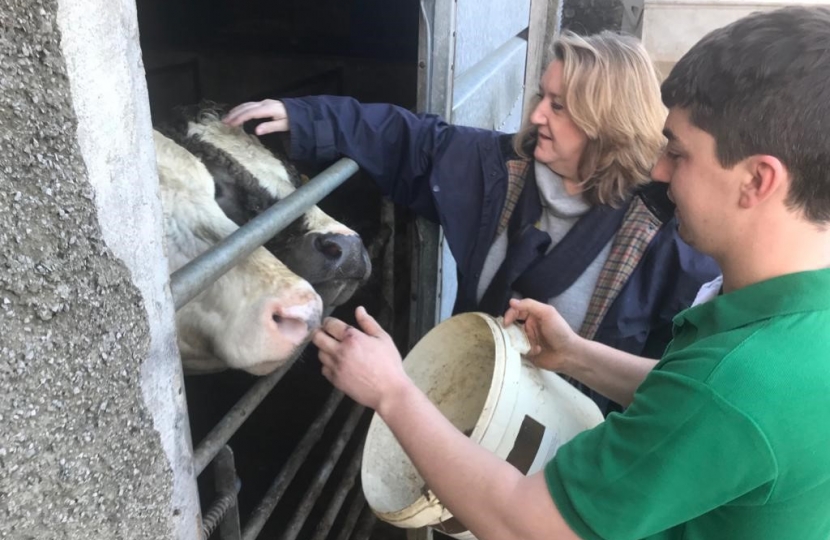
Sarah Dines MP said, ‘I am delighted that a lot of hard work on behalf of our dairy farmers has paid off! I was one of a small band of MPs pressing hard for this fund. It will be a lifeline to several of our local farmers. Well done, the Government!’
New fund to support dairy farmers with the challenges of coronavirus
Eligible dairy farmers able to access up to £10,000 of support each. Cross-industry campaign to drive consumer demand for milk.
England’s dairy farmers will be able to access up to £10,000 each to help them overcome the impact of the coronavirus outbreak.
The new funding will help support dairy farmers – who together continue to produce over 40 million litres of milk every day – who have seen decreased demand for their products as bars, restaurants and cafes have had to close.
Today’s announcement is the latest action from the government to support dairy farmers, building on the unprecedented levels of support already announced by the Chancellor and our recent action to temporarily relax some elements of UK competition law to allow suppliers, retailers and logistics providers in the dairy industry to work more closely together on some of the challenges they are facing.
With some dairy farmers facing financial difficulties and excess milk, the new fund will provide support for those most in need. Eligible dairy farmers will be entitled to up to £10,000 each, to cover 70% of their lost income during April and May to ensure they can continue to operate and sustain production capacity without impacts on animal welfare.
It also comes as the government today backed a £1million campaign to boost milk consumption and help producers use their surplus stock.
Environment Secretary George Eustice said:
“Our dairy industry plays a crucial role in feeding our nation and we are doing all we can to ensure they are properly supported during this time.
“We’ve already relaxed competition laws so dairy farmers can work together through the toughest months, but recognise there is more to be done. That is why today we have kick started a new campaign to boost milk consumption and have announced a further package of funding.
“We will continue to stand alongside our dairy farmers through this difficult period”.
The dairy sector is the UK’s largest farming sector, with milk accounting for 16.85% of total agricultural output in the UK in 2018. Since the start of the coronavirus outbreak, the dairy industry has faced challenges of excess milk, falling prices, and reduced demand from the hospitality sector.
While many farmers have already rerouted their milk supplies to retailers and supermarkets – which have seen increased demand in recent weeks – today’s move will give the farmers in the greatest need the financial assurance to ensure they can remain operational, sustain production capacity and continue to meet animal welfare demands at this time.
Eligible dairy farmers who have lost more than 25% of their income over April and May due to coronavirus disruptions will be eligible to access this funding for those qualifying months, with no cap set on the number of farmers who can receive this support or on the total funding available.
It comes as the Agriculture and Horticulture Development Board (AHDB) has today launched a new marketing campaign to increase consumption of milk in UK households, funded jointly by the AHDB, Defra, the Scottish Government, Welsh Government, Northern Ireland Executive and Dairy UK.
The £1 million promotional campaign will to help increase sales of dairy products by encouraging the public to drink more milk.
Christine Watts, AHDB’s Chief Marketing Officer said:
“This new innovative marketing campaign is a fantastic demonstration of what can be achieved when industry and Government join together to meet a common supply chain challenge.
“It will support dairy farmers and processors in driving demand for milk within households across the UK. It will link consumers’ love of the great taste of milk and dairy with how we are all having to manage these challenging times at home and at work.”
The UK’s food supply chain remains resilient and the Environment Secretary continues to meet regularly with representatives of the food and farming industry to ensure people can get the food and groceries they need.

